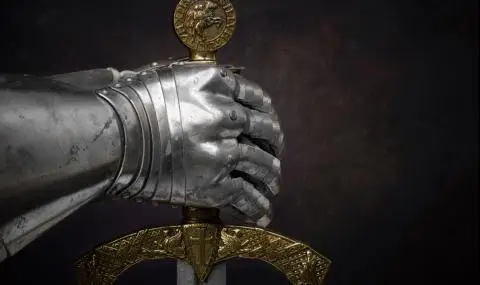On April 13, 1204, Constantinople was conquered by the knights of the Fourth Crusade.
The knights set out to liberate the Holy Sepulcher, but decide to deal with Constantinople.
The reason is a series of financial commitments made, but not kept.
Venice undertook to transport the army of 33,500 crusaders and 4,500 horse in return for payment and some services. Doge Enrico Dandolo wanted 85,000 silver marks, but the Crusaders only had 51,000. To top up the amount, Venice demanded that they attack and capture for her the important port of Zadar in Dalmatia (now Zadar in Croatia). After Zara, the march headed for Constantinople to help the deposed emperor regain his throne against Byzantium's support in the battles with the infidels. Alexius ascends the throne, but is unable to pay the sum promised, which turns the western knights against him.
And the emperor himself fled to Nicaea in Asia Minor.
An attempt was made to elect a new emperor, but on April 13 the two Lascarides brothers, one of whom had been elected, established themselves in Asia, and the patriarch sought refuge in Thrace. The Crusaders spared the lives of the notables and high-ranking citizens who remained in the city, such as the sister of the King of France – Agnes, as well as Maria, - the daughter of the Hungarian king Bella III from 1172 – 1196. Both are empresses – married respectively to Andronicus I Comnenus (1183 – 1185) and Isaac II Angelus (1185 – 1195 and 1203 – 1204).
At the same time, regardless of their oaths, the Latins indulged in massive robberies.
The sack of Constantinople remains a famous page in the history of Medieval Europe.
It is known that the sacking of the imperial capital fueled an anti-Latin polemic, which led more than one historian to conclude that the schism separating Byzantium and Rome actually came into force only in 1204. The then Pope himself, Innocent III, violently expressed his indignation of chivalry.
Subsequent division of the lands. As early as March 1204, the division was discussed in the Crusader camp. Besides the emperor, who was to receive lands on both sides of the Straits, Boniface de Montferra was also to receive lands on both sides, receiving the city of Thessalonica. Baudouin gave Count Louis the Duchy of Nice /Nicaea/ in Asia Minor, and the Duchy of Philippopolis /Plovdiv/ to Count Rainier de Tri. The remaining territory was divided, consulting the imperial cadastre, into 24 domains, 12 each for Crusaders and Venetians. The area was dependent on the size of the army. The offices in the court were entrusted to the knights and most of them had western names – constable, marshal, etc. All the barons generously distributed fortresses to the orders throughout the territory of Byzantium.
The consequence of the fall of Constantinople and the conquest of the lands in Thrace and Asia Minor
is the formation of the Latin Empire.
It was created on the basis of a preliminary treaty between the Latins and the Venetians. Like any medieval state, the Latin Empire had to have a ruler. The election of the new emperor was done by 12 electors – 6 each by Venetians and Crusaders. Within the army itself there were disagreements about the choice for and against. There were two contenders – Boniface de Montferrat and Baudouin de Flandre and de Hainaut. The council has decided – whoever is elected emperor, the other should agree without question to become his vassal. The council met in a church in the palace of the Doge of Venice Dandolo.
According to Clary, the choice of Baudouin was unanimous, while other authors, mostly Venetian, speak of some initial disagreement. This includes Nikitas Choniat, who reports that Dandolo persuaded the council to settle on Baudouin, who was young, more unstable, and accordingly – easier to manipulate. The candidacy of Boniface de Montferra was rejected by the Venetians, who were afraid to make their countryman emperor and to put their power under possible threat. The council settled on Baudouin, and the choice was announced by the bishop of Soissons.
